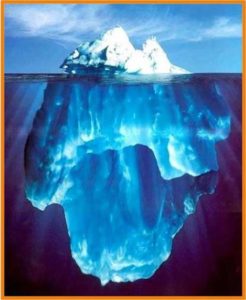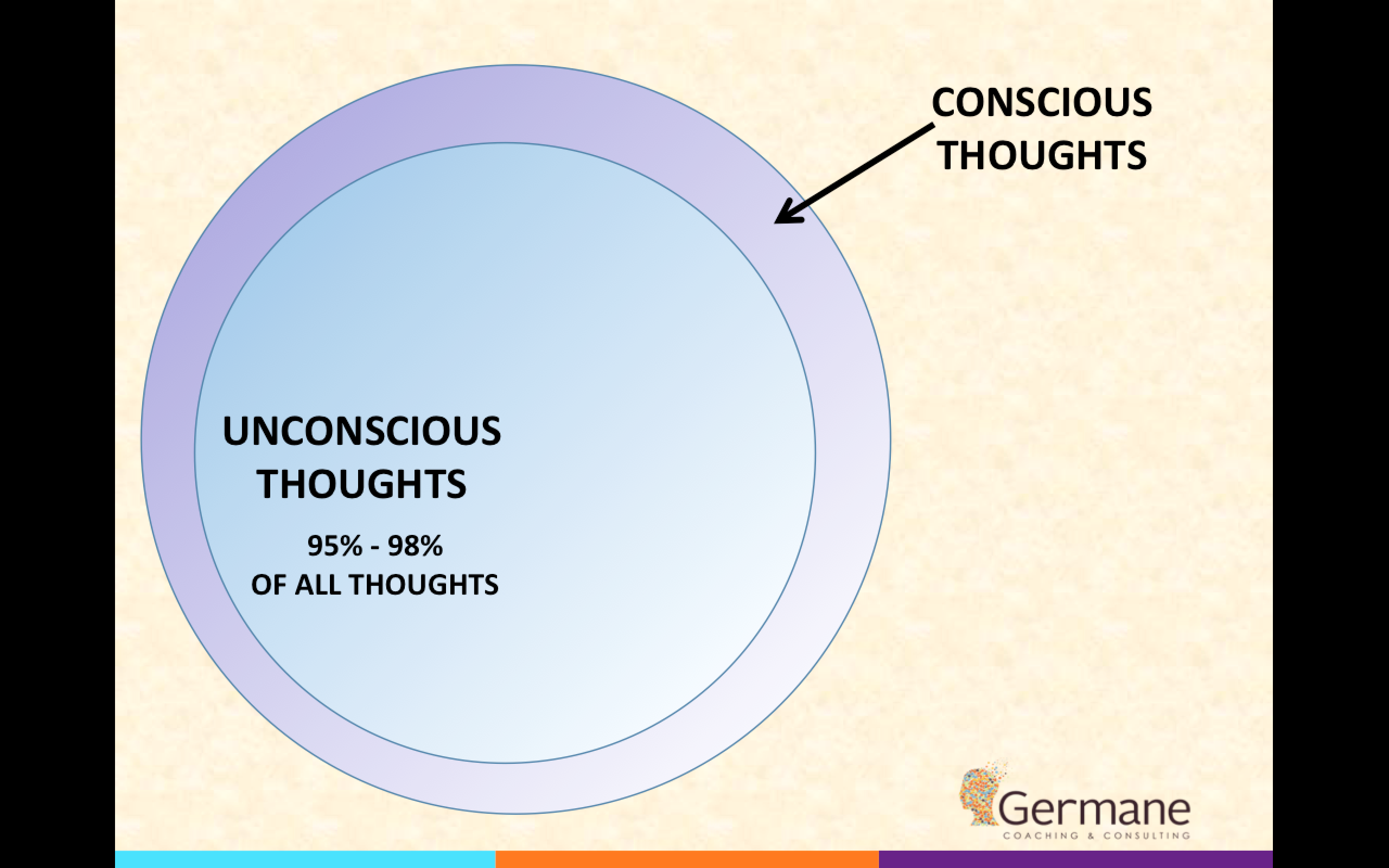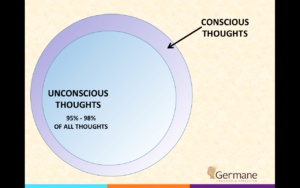Meditation improves leadership decision making by providing access to your most hidden and valuable thoughts.
How Meditation Improves Leadership Decision Making
Let’s start with some background on the human brain.

- Human beings have approximately 60,000 thoughts per day
- 98% of these thoughts are unconscious, meaning:
- You don’t know they’re present
- You have no idea they’re part of your decision making process
You think you’re making rational decisions, based on thoughtful analysis. When, in fact, most of your decisions take place in, and are based on, what’s outside your conscious awareness.
There’s a way out of this dilemma.
Sorting Useful versus Useless Thoughts
The 1st way meditation improves leadership decision making is by reducing your time inside the trance of useless thoughts.
We’re swept away by, and into, our unconscious thoughts more often than we notice. Do a test run. Guess how many times you get lost in thought over a 10 minute period. Record your answer. Then commit to 10 minutes during which you do your usual thing, while noticing and counting the times you’re lost in thought, Higher than you guessed?
My personal average is 7.5. Although sometimes I’m lost in a single thought for several minutes, which creates an artificially low average.
Our brains are thought producing machines, and they’re really good at it. But there’s no quality control mechanism sifting out the irrelevant and useless thoughts. Mindfulness creates that missing element. You’re instructed to notice thoughts [insert pause] instead of being swept away by them. This, in turn, allows you to shift your focus back to what’s most helpful in making a given decision.
Eliminating Dangerous Choices
Meditation teaches you to notice more thoughts per square foot. As such, you begin to notice what was previously outside your conscious awareness.
Those unconscious thoughts, left to their own devices, can get you in trouble. Sometimes they lead to dangerous, even life-threatening, choices. Consider this study published in Proceedings of the National Academy of Sciences:
Both men and women hold unconscious expectations that hurricanes with male versus female names, are more violent and powerful. This leads to taking greater precautions, including the likelihood of following evacuation orders, for hurricane Bob versus Katrina.
Neither you nor I would consciously decide to put our families in harm’s way, but our unconscious brain does exactly that. Meditation increases our awareness and access to previously unconscious thoughts, so we can mitigate their negative affects.
Noticing Important and Previously Hidden Data
Emotions are a considerable factor in your decision making process, even when you’re unaware of what you’re feeling. Again, you can mitigate the lack of awareness. All emotions are expressed, and can be felt, in the body, an important source of data.
- The hairs on the back of my neck stood up.
- A shiver ran down my spine.
- My heart softened.
Unfortunately, you may not notice this data because humans spend most of our conscious efforts attending to what’s in our forehead. Meditation improves leadership decision making by focusing attention on physical sensations and underlying emotions.
You’re considering a candidate for a critical role on the team. You sense the tightness in your stomach. You used to ignore this sensation or took an antacid to make it go away. Through meditation you’ve learned to notice, let it be, and address it with curiosity. Now you ask,
What does my body want me to know about this particular candidate?
The Bottom Line
Learn how to meditate. Want helpful tools and tips? Let’s talk.



